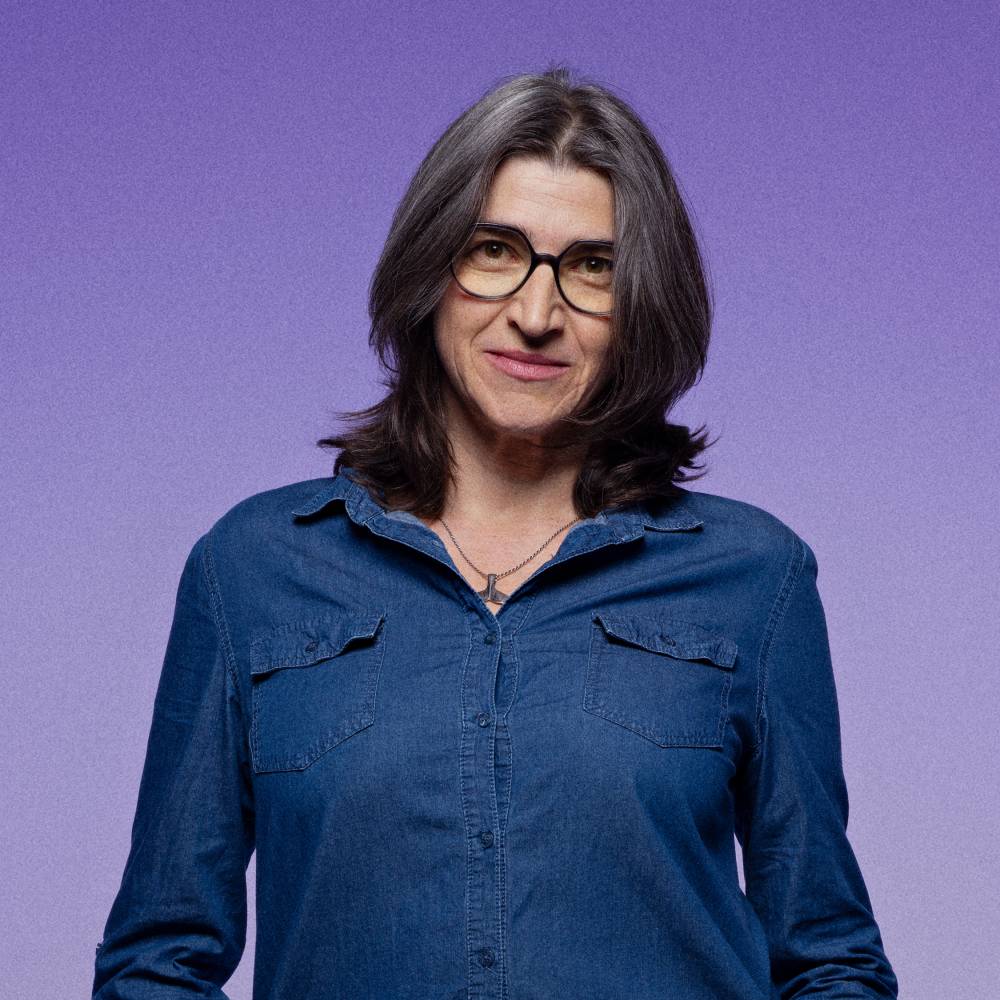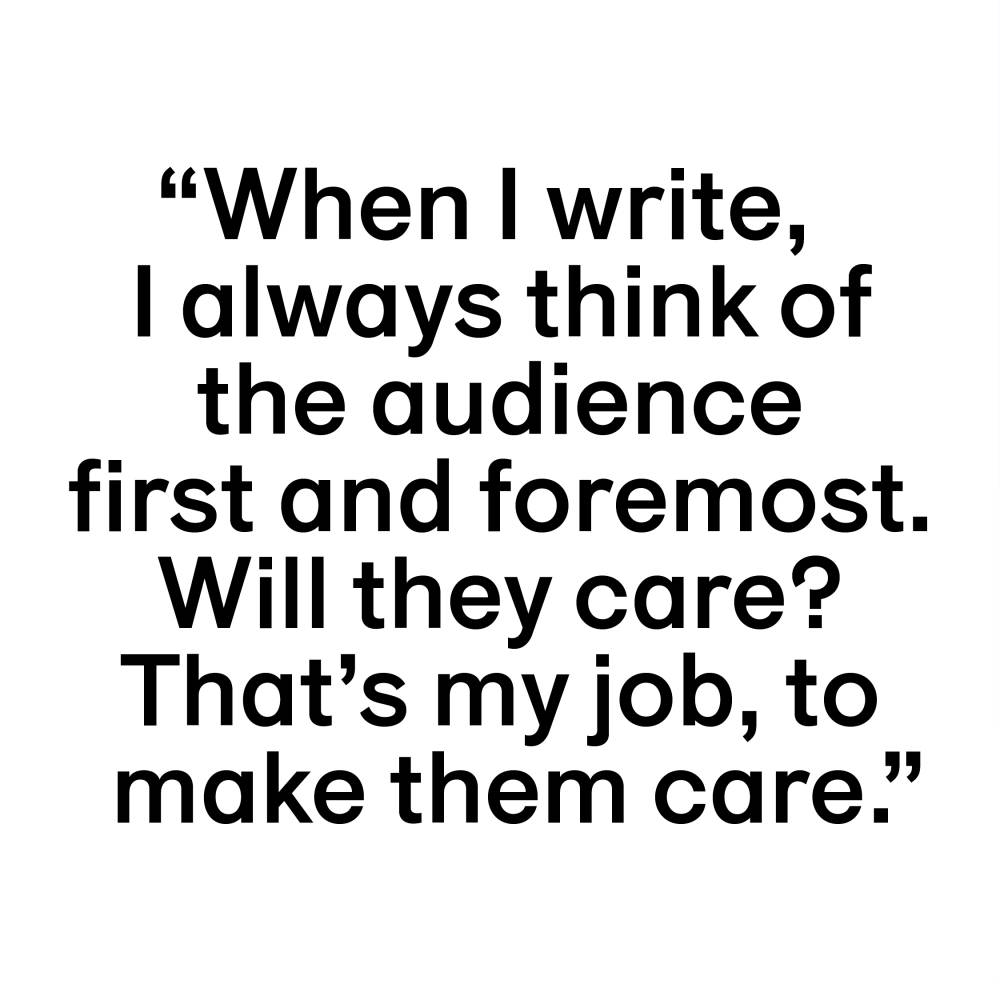Beyond the Screen – Stéphane Mitchell
The screenwriter on storytelling and her new series THE GUARD and THE DEAL.
18.03.2025
Stéphane Mitchell presented THE GUARD at the European Film Market in Berlin. Now, THE DEAL, directed by Jean-Stéphane Bron, is having its world premiere at the Series Mania festival in Lille.



How did you come to write films and series?
As a child, I was passionate about literature, theatre, and then cinema. And it was writing for the screen that became my focus. During my studies in New York in the early 90s, I had the chance to meet up with Vincent Pluss, a director from Geneva!
When I returned to Switzerland in 2000, it was thanks to him that I met the new generation of Swiss-French filmmakers. We founded the group “Doegmeli”, wrote manifestos on film policy and filmed without budget. Pluss’ film ON DIRAIT LE SUD, which I co-wrote with Laurent Toplitsch, is the result of this whirlwind of energy.
While I had one foot in independent cinema, I had another in television, writing two episodes of the popular LES PIQUE-MEURONS. Finally, it was the fruitful meeting with Pauline Gygax and Max Karli of Rita Productions that led to the writing of the mini-series HEIDI, then the TV film DECHAÎNEES etc. I owe a lot to all these people who believed in me.
Where and how do you find your ideas?
Everywhere! In the newspapers, in what I read, in discussions with friends, by watching people in the street. I love researching, immersing myself in new worlds and political realities (the good offices and Swiss diplomacy for THE DEAL). I rarely write alone, as I have the good fortune of being invited to join new projects. So, the blank page doesn't really exist for me, because other people's ideas stimulate me. My imagination gets immediately sparked.
What were the specific challenges of writing “THE DEAL”?
There are many screenwriters credited for THE DEAL. Writing a miniseries takes place in several phases, over several years. I had the privilege of being part of the adventure at its start with Julien Descombes. We developed the first episode and the outline of the season with Jean-Stéphane Bron and Alice Winocour.
One of the major challenges – apart from digesting the massive amount of documents on the Iranian nuclear agreement and transforming it into a moving and thrilling narrative – was the extent to which we should or should not break free from historical reality. And above all, given the serious and complex geopolitical issues at stake, and the top-secret negotiations, how much weight should be given to testimonies, official reports and press statements? Who knows what really goes on behind closed doors? That's what makes this subject so interesting.
How do you manage to think of stories in terms of episodes?
All in all, the storytelling remains the same, whether you are writing a series or telling an anecdote at the dinner table: you should keep the audience in suspense, with twists, surprises, emotions, suspense, and always, always save the best for the end. There is something of the fractal order in narration: every story, whatever its length, is divided into beginning, middle, end. Likewise, every episode, every act, every sequence, every scene and every line.
How does success affect your work?
It is of course always an honour and a pleasure when a project I am involved in receives recognition. The repercussions are numerous, both in terms of the funding of the project and the quality of the projects that are offered to me. For example, the reputation of QUARTIER DES BANQUES had the direct consequence in the form of a phone call from the production companies Catpics (THE GUARD) and Bande à part (THE DEAL).
Series are not a solo show. How do you divide up the roles when you write series as a team?
When I was writing HEIDI, I was certain that I could write better on my own. Since then, I have realised the richness and strength of writing with others and love this collaborative creative process. In Switzerland, my experience is that each series is organised organically according to the styles and experience of each person. Some projects are written by two people, others by eight.
More and more often, there is one person who directs the writing and is in charge of the vision and the narration, but also of the organisation and the relations with the production, the directing, the technical crew, the channel, etc.
The advances in digital technology allow us to write on the same text with several people at the same time, it's quite amazing.
Did you ever have to rewrite the script during shooting?
This sometimes happens when you are in charge of the writing direction. You may lose a set or have to rationalise the shooting schedule. Sometimes a scene is left out while shooting, so you have to reinject the missing dramatic information into a scene that has not yet been shot.
Has the work of a screenwriter changed?
Not really. Writing still means hours and hours hunched over my computer, or sticking post-it notes on the wall, creating and imagining with my co-authors, reading documents, questioning specialists, looking for synonyms, finding myself stuck with a plot that doesn't work, a heroine with no stakes, a weak denouement, rewriting, rewriting and rewriting again. To adapt Edison's adage: writing series is 1% inspiration, 94.5% perspiration and 0.5% festival presence.
Which famous film or TV series scripts would you have liked to work on?
To imagine myself in the writer's room of series such as THE WIRE, THE GOOD WIFE, CALL MY AGENT, FLEABAG or TSCHUGGER, what a dream. Why? To witness the brilliance of exchanges as well as the fake good ideas, the insurmountable problems and their resolution. In short, to be at the heart of the reactor. To rave, to rejoice and above all to learn.
Which character in a TV series did you fall in love with while writing?
Honestly, with all of them. Even the most twisted. Is this narcissistic, doctor?